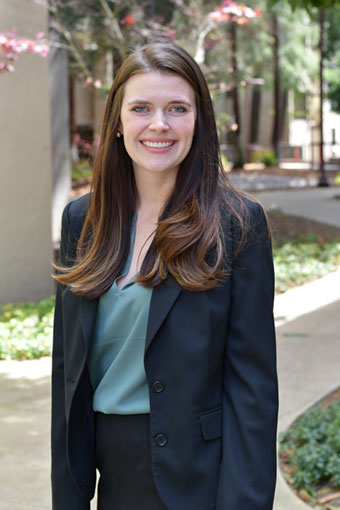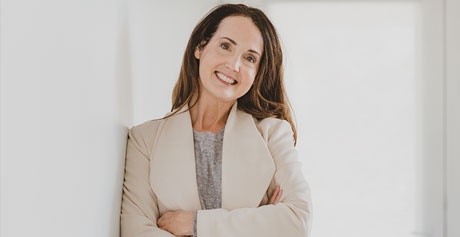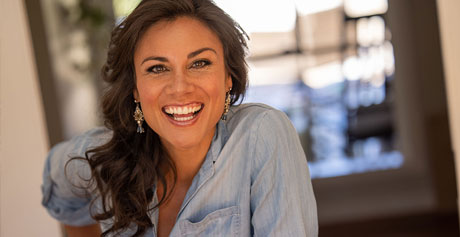Her Legal Passion Stems from Her Own Personal Experience, Time Tested Advice on How to Handel the Little Things, & the Big Things! A Conversation with Silicon Valley Attorney, Amanda K. O’ Neal
 Q: At age 16, what did you think your career path might be?
Q: At age 16, what did you think your career path might be?
AON: At age 16 is when I figured out, I wanted to be a Special Education Attorney. I decided I wanted to be a lawyer around age 12. I remember showing up to career day at school during sixth grade dressed as a lawyer. I have personal connections with special education law as both my brother and sister had to navigate the special education systems throughout their education. My mom is also a speech and language pathologist providing services to students with disabilities. One day during my Junior year of high school, my mom came home from an Individualized Educational Plan (IEP) meeting and told me a Special Education Attorney participated in the meeting. It was at that moment I decided that is what I was going to be a special education attorney. I saw my parents have to fight with the school districts to get my sister and brother what they needed, and I did not want other families have to go through that process without assistance. While I was in college, I worked as a habilitation provider for children with disabilities and quickly learned the stories my siblings had were not unique.
Looking back, it is amazing that at 16 years old I had a dream to do this type of work, and here I am living that dream.
Q: What was your first job? How did it shape or impact you?
AON: My first job was at the Rocky Mountain Chocolate Factory when I was 16 years old. My first job taught me the value of hard work. As a teenager, I learned the value of money and the amount of hard work you had to put in to get money. I learned customer service skills, time management, how to work under a supervisor, and learn the type of work I wanted to do moving forward. I did not enjoy retail work, and it was just as important to learn the type of work I did not want to do just as much as the work I did want to do.
Q: What expectations did you have after graduating and receiving your law degree?
AON: My expectations following law school were that I would pass the bar and find a job in Orange County California where I attended school. I also expected that I would get a job quickly and be able to begin my work as a lawyer immediately. After you graduate, you have one more barrier standing in the way between you and your career – the BAR exam. Following graduation, you immediately begin prep for your bar exam. My program was 14 weeks. I took the bar at the end of July, and you then had to wait until November to find out the results of the test and whether I would, in fact, become an attorney. During that four months law graduates are looking for jobs in the mere anticipation and hope that you get good news come November.
I was adamant about becoming a Special Education Attorney. I only applied to jobs for attorney positions that handled special education or disability-related matters. A lot of the attorneys in our field are solo practitioners and were not ready at that time to expand their firms by hiring on a full-time attorney. While finding the job that suited me, I did contract work for smaller special education law firms writing due process complaints and reviewing documents.
Then luckily not too long after I found out I passed the bar I attended the national annual Council of Parents Attorneys and Advocates (COPAA) special education conference in San Diego, California. I met my current employer. They were hoping to find new attorneys who were interested in the area of law. I immediately told them I was hirable and moved up to Northern California to work at Tollner Law Offices the following month.
Q: What type of cases do you generally handle?
AON: I handle Special Education and Disability Rights cases representing Parents and Students. I also handle the preparation of limited conservatorships for adults with developmental disabilities.
Q: How you manage your work-life balance?
AON: This is something I work on every day. Managing a work-life balance is all about time management and prioritizing your time spent on work. As I grow in my legal career this is something that is becoming more important. I am learning that to be the best attorney I can be for my clients I also have to make sure I am taking care of myself.
Q: Can you tell our audience one of your most memorable moments your career?
AON: The work I do is difficult at times, and at times when I am stuck in the office it is hard to conceptualize if my work is really making a difference. On a particularly busy week I was able to visit a student I represented who was in a new setting. This particular client had a very difficult history in school. He had a lot of needs that were not properly met by the school district. Through my representation we placed him in a school specialized to meet his needs. I had the opportunity to visit the school, and what I saw brought me immediately to tears.
A young boy who used to hate school and had a very difficult time was happy, smiling and playing with his peers. He was in a school where he finally felt safe and could finally learn. This moment reassured me that this work matters, and we are making a difference client by client.
Q: What’s one lesson you’ve learned in your career that you can share with our audience?
AON: Throughout my career, I am continuing to learn that you cannot have control over everything, and it is okay to make mistakes. In the legal field there are a lot of moving parts with multiple perspectives and players. I am learning that it is best to have a growth mindset, and in the long run it makes you a better attorney because you can be flexible in how you can accomplish the same goals. It is also important in that when things do not go as expected you have the flexibility to think of alternative solutions.
Q: What are some of the challenges you feel women face today?
AON: I believe the challenges that women are facing today are similar to the challenges Women have had to face for many years. Women are expected to do all things and do them well. The expectations placed on women to be perfect has increased by the pressures of social media.
When I first started in my career as a young female lawyer, I constantly felt the pressure to prove myself - to prove that I was smart enough, bold enough, strong enough to be a good attorney. I received intake calls where the caller would assume, I was the secretary instead of one of the attorneys. The stigma continues against women in the workplace, and overcoming this stigma is a challenge woman continue to face especially in fields predominantly occupied by men.
Q: What advice would you give to young women who want to succeed in the workplace?
AON: The advice I would give to young women who want to succeed in the workplace is to use your resources, build relationships, and it’s okay to make mistakes. Using your resources and building relationships go hand and hand. It is very important to have mentors and people you can rely on whether this is to get involved in an area of interest or to assist in times of challenge during your career. I have a great group of colleagues who I know I can reach out to if I need assistance with any of my cases or to brainstorm ideas. I am also involved in local and national organizations related to special education law, which provides me access to many resources to continue to develop my practice and skills. In any field there will be times you feel alone and stuck in a given situation. It is important to have mentors and people you can reach out to for support in the challenging moments and the successes of your career.
What I wish I could tell my past self is that it is okay to make mistakes and you will become a better attorney because of those mistakes. Personally, for me, it was very difficult to make a mistake or feel I messed up in some way. I expected of myself that everything would go as I saw fit and work as I expected. This mindset is not realistic and does not serve for growth. Through mistakes I have learned how to work better, more efficiently, and through each mistake I learn how to do things differently next time. There is a reason they call it practicing law and not perfecting law. We are constantly practicing new skills and growing. This makes each day different and exciting.
Four Things About Attorney Amanda K. O'Neal
1. If you could talk to one famous person past or present, who would it be and why?
If I could talk to one famous person, it would be Audrey Hepburn. I have always been fascinated by her and all of her endeavors. She made a career in films. But she had a lot more depth to her that most people do not know about. She was a mom, actress, dancer, and humanitarian. People expected a lot from her as a woman, and she was able to handle herself with such grace and poise even during more difficult times in her life. I believe she could have some wise words for women today, trying to juggle all the expectations society throws at us.
2. Favorite food?
My favorite food is corned beef hash.
3. What book are you currently reading?
Inward by Pueblo Yung
4. What’s your favorite part of the day?
My favorite part of the day is the early evenings when I am unwinding from the long day and relaxing with a good movie or binge-watching a good tv show.

